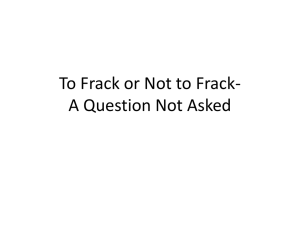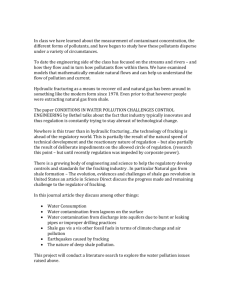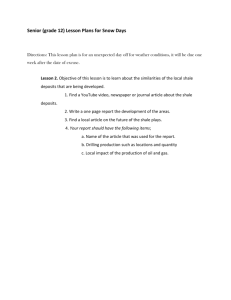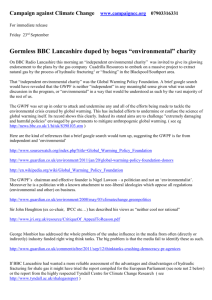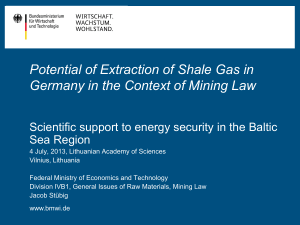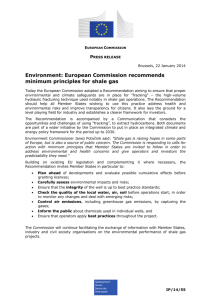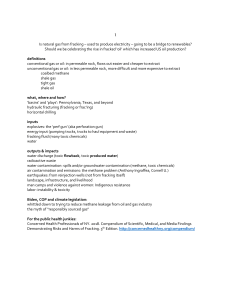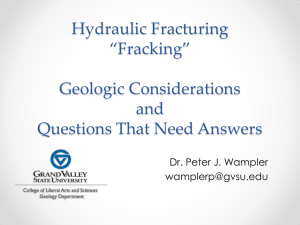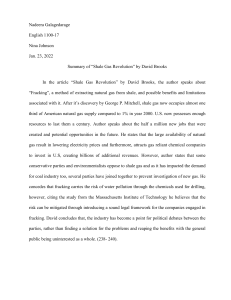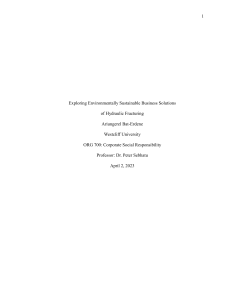Class 8 – Homework 7
advertisement
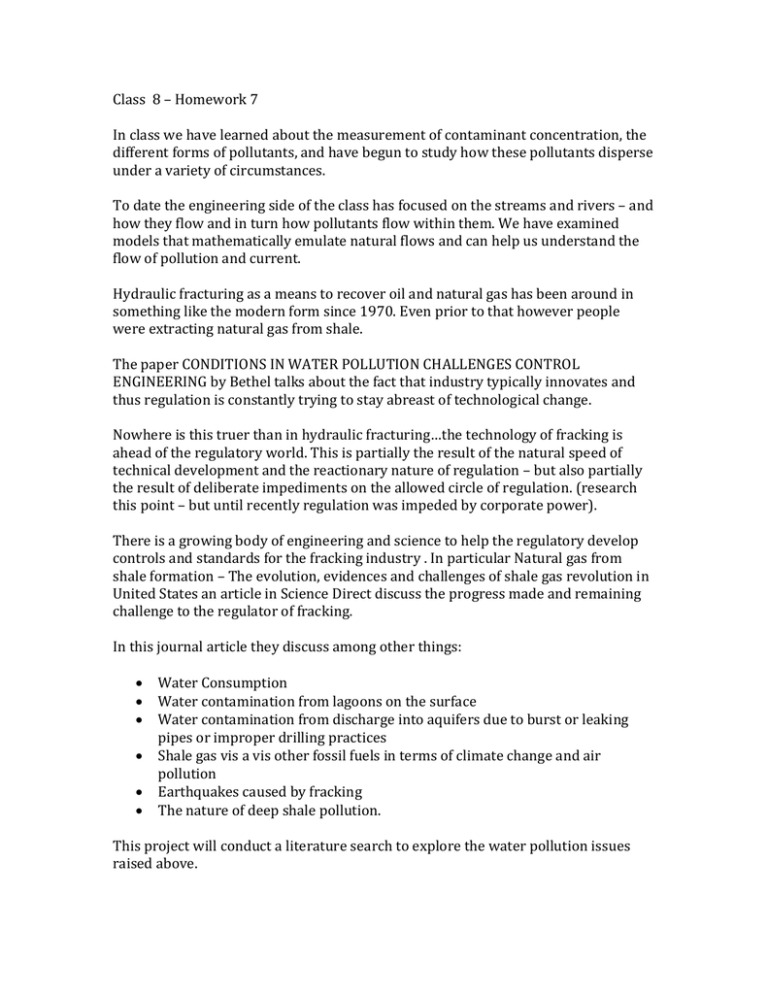
Class 8 – Homework 7 In class we have learned about the measurement of contaminant concentration, the different forms of pollutants, and have begun to study how these pollutants disperse under a variety of circumstances. To date the engineering side of the class has focused on the streams and rivers – and how they flow and in turn how pollutants flow within them. We have examined models that mathematically emulate natural flows and can help us understand the flow of pollution and current. Hydraulic fracturing as a means to recover oil and natural gas has been around in something like the modern form since 1970. Even prior to that however people were extracting natural gas from shale. The paper CONDITIONS IN WATER POLLUTION CHALLENGES CONTROL ENGINEERING by Bethel talks about the fact that industry typically innovates and thus regulation is constantly trying to stay abreast of technological change. Nowhere is this truer than in hydraulic fracturing…the technology of fracking is ahead of the regulatory world. This is partially the result of the natural speed of technical development and the reactionary nature of regulation – but also partially the result of deliberate impediments on the allowed circle of regulation. (research this point – but until recently regulation was impeded by corporate power). There is a growing body of engineering and science to help the regulatory develop controls and standards for the fracking industry . In particular Natural gas from shale formation – The evolution, evidences and challenges of shale gas revolution in United States an article in Science Direct discuss the progress made and remaining challenge to the regulator of fracking. In this journal article they discuss among other things: Water Consumption Water contamination from lagoons on the surface Water contamination from discharge into aquifers due to burst or leaking pipes or improper drilling practices Shale gas vis a vis other fossil fuels in terms of climate change and air pollution Earthquakes caused by fracking The nature of deep shale pollution. This project will conduct a literature search to explore the water pollution issues raised above.
